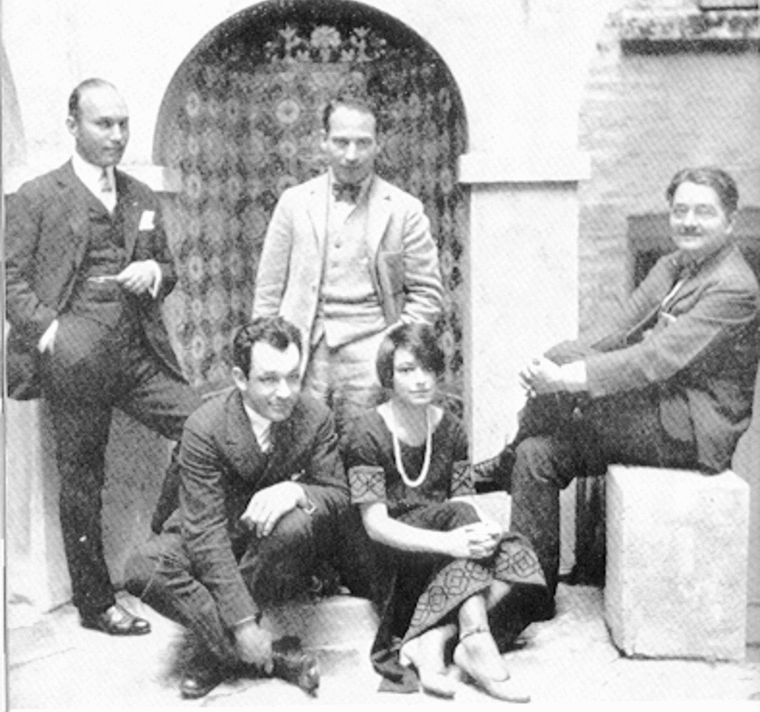1. TIMING - There are a lot of groups that meet once a month, but you should meet at least twice. Otherwise, you'll never get through everyone's material in a timely fashion. Also, a once-a-month meeting tends to fade from people's minds - people are more likely to be absent or unprepared.
2. SIZE - I once attended the meeting of a writers group with 24 writers. It ran, shall we say, a little long. Even if everyone had limited their critique to five minutes it would still have run two hours at the bare minimum. And of course they didn't run just five minutes. The group self-destructed in about two months.
I believe the ideal size of a group is between five and ten members. With fewer than five people, a group becomes unstable. In a large group, the absence of a single member is not important; but in a four-person group, that absence is highly significant - it's 25% of the group. Very small groups tend to shrink rapidly into nothingness and disappear. And of course, in groups of more than ten, the meetings run too long, and too many members have to wait months instead of weeks for a slot in the schedule.
3. ETIQUETTE - Etiquette is everything.
A. Be nice. That doesn't mean being cloyingly delicate about the writer's feelings. But it does mean no jokes at the writer's expense, and at least the attempt to suggest an answer to any problem that one might see in the script. If the reviewer can't find a solution to the issue, that's the failure of the reviewer, not the writer. It means that the reviewer must always remember that it is easier to point out the defects in someone else's work than it is to produce one's own.
B. Be open. On the writer's end, it means a lack of defensiveness. The writer has asked the reviewer to critique his work. He can't then argue with person who's giving him what he asked for. Some groups go so far as to have the "Cone of Silence" rule - the writer can't say anything while the critiques are being given.
C. Pay it back. Every member of the group must remember to pay back what they receive. Occasionally, someone will bring a work for review, receive the review, and then disappear. Not cool. You owe at least as many critiques as you receive.
D. Treat the group's time as precious. Don't waste half an hour talking about manuscript format or the serial comma. Get to the meat of your critique, leave the small stuff for your written notes, and then give the next person the podium.
4. AND IF POSSIBLE, WEAR SNAPPY '40s CLOTHING LIKE THOSE PEOPLE IN THE PICTURE. Hey, it worked for them.

2. SIZE - I once attended the meeting of a writers group with 24 writers. It ran, shall we say, a little long. Even if everyone had limited their critique to five minutes it would still have run two hours at the bare minimum. And of course they didn't run just five minutes. The group self-destructed in about two months.
I believe the ideal size of a group is between five and ten members. With fewer than five people, a group becomes unstable. In a large group, the absence of a single member is not important; but in a four-person group, that absence is highly significant - it's 25% of the group. Very small groups tend to shrink rapidly into nothingness and disappear. And of course, in groups of more than ten, the meetings run too long, and too many members have to wait months instead of weeks for a slot in the schedule.
3. ETIQUETTE - Etiquette is everything.
A. Be nice. That doesn't mean being cloyingly delicate about the writer's feelings. But it does mean no jokes at the writer's expense, and at least the attempt to suggest an answer to any problem that one might see in the script. If the reviewer can't find a solution to the issue, that's the failure of the reviewer, not the writer. It means that the reviewer must always remember that it is easier to point out the defects in someone else's work than it is to produce one's own.
B. Be open. On the writer's end, it means a lack of defensiveness. The writer has asked the reviewer to critique his work. He can't then argue with person who's giving him what he asked for. Some groups go so far as to have the "Cone of Silence" rule - the writer can't say anything while the critiques are being given.
C. Pay it back. Every member of the group must remember to pay back what they receive. Occasionally, someone will bring a work for review, receive the review, and then disappear. Not cool. You owe at least as many critiques as you receive.
D. Treat the group's time as precious. Don't waste half an hour talking about manuscript format or the serial comma. Get to the meat of your critique, leave the small stuff for your written notes, and then give the next person the podium.
4. AND IF POSSIBLE, WEAR SNAPPY '40s CLOTHING LIKE THOSE PEOPLE IN THE PICTURE. Hey, it worked for them.

No comments:
Post a Comment